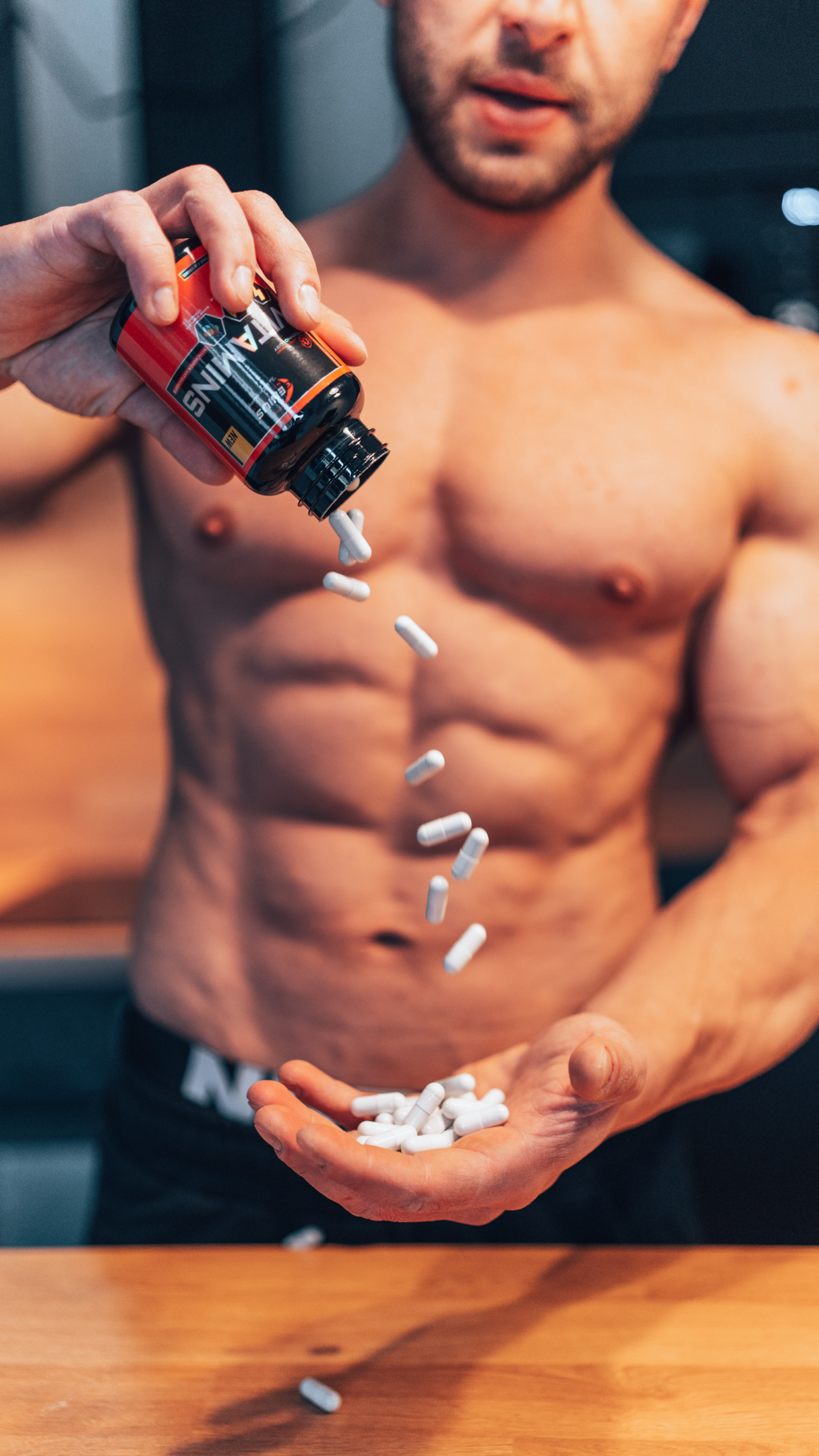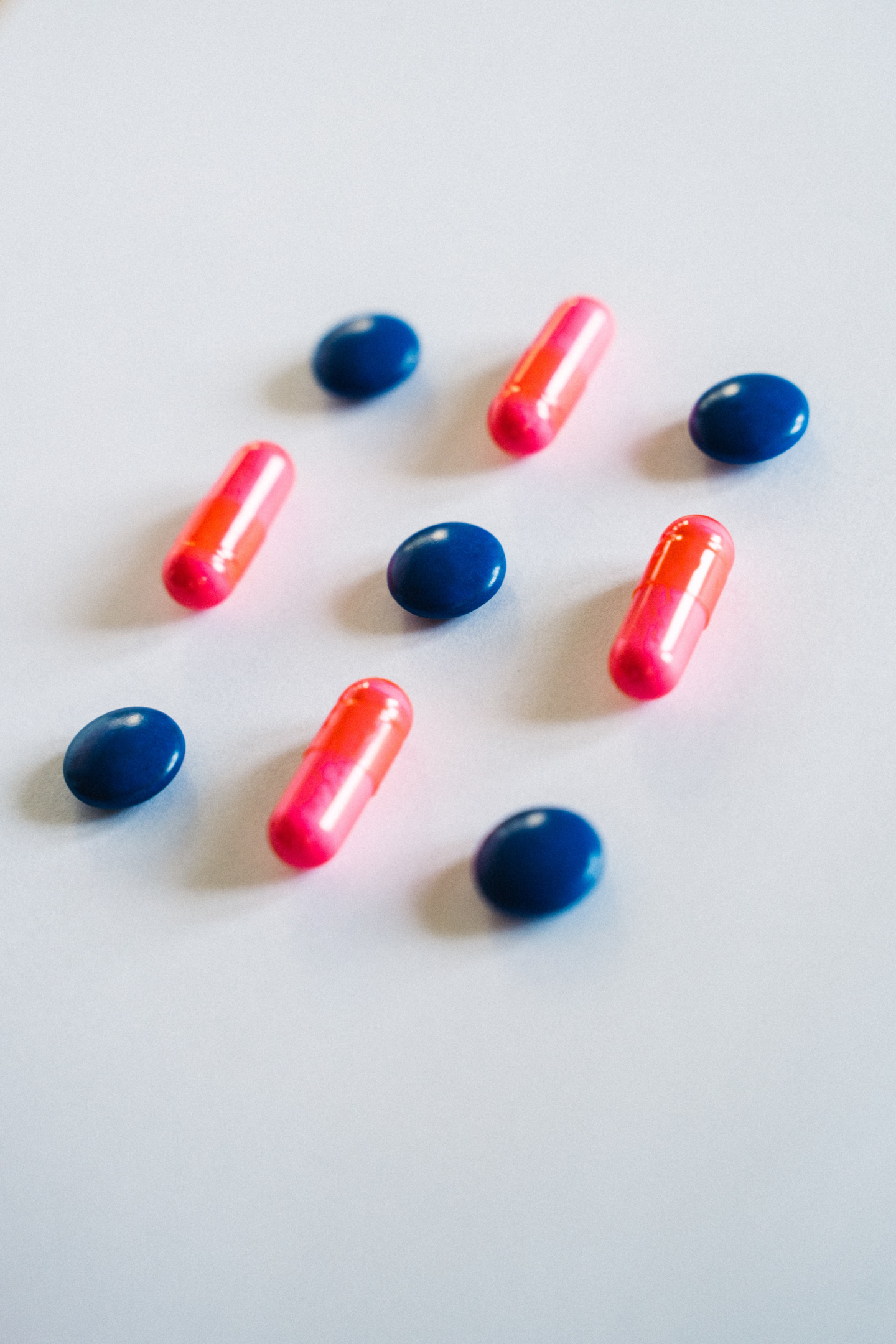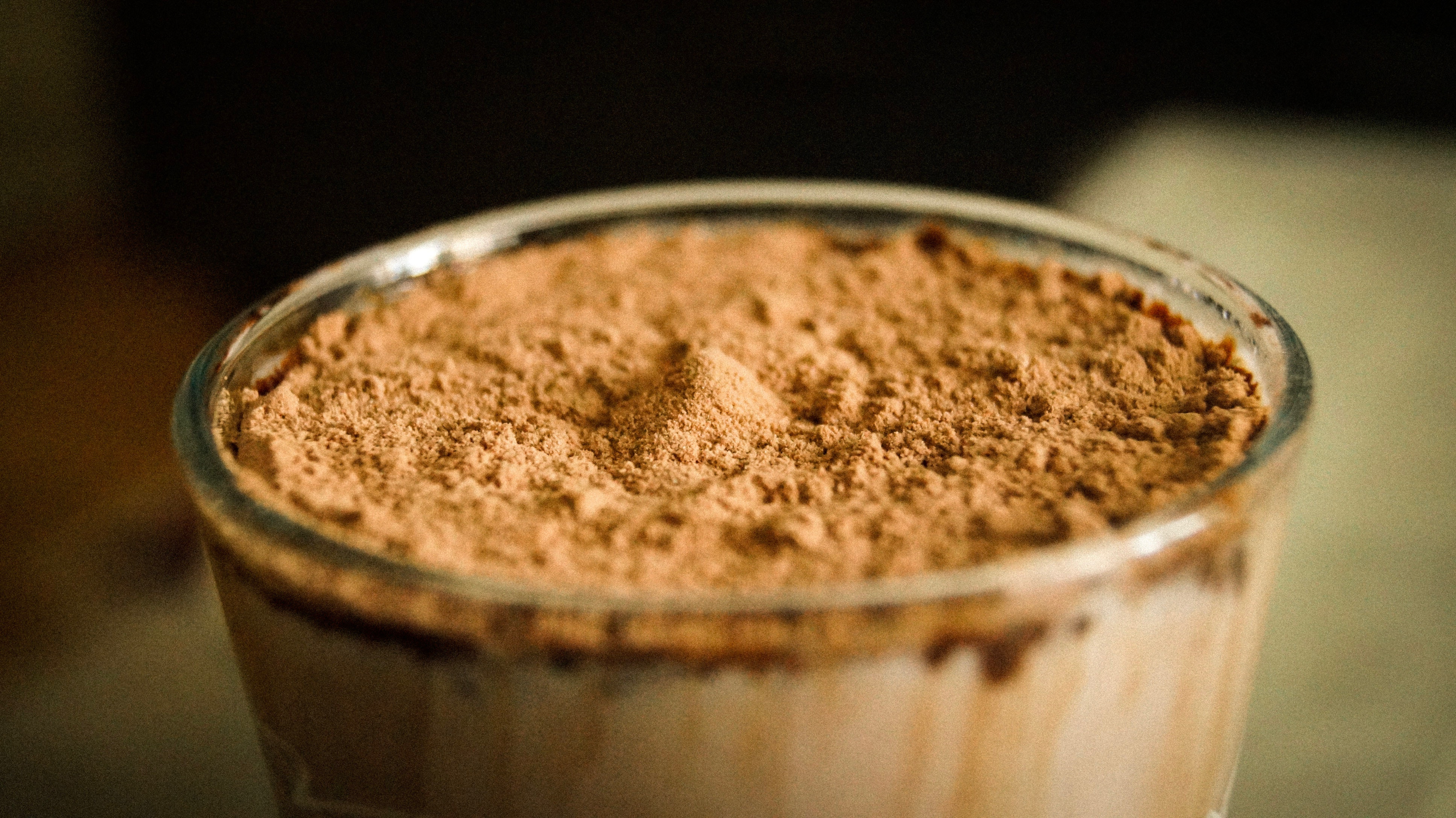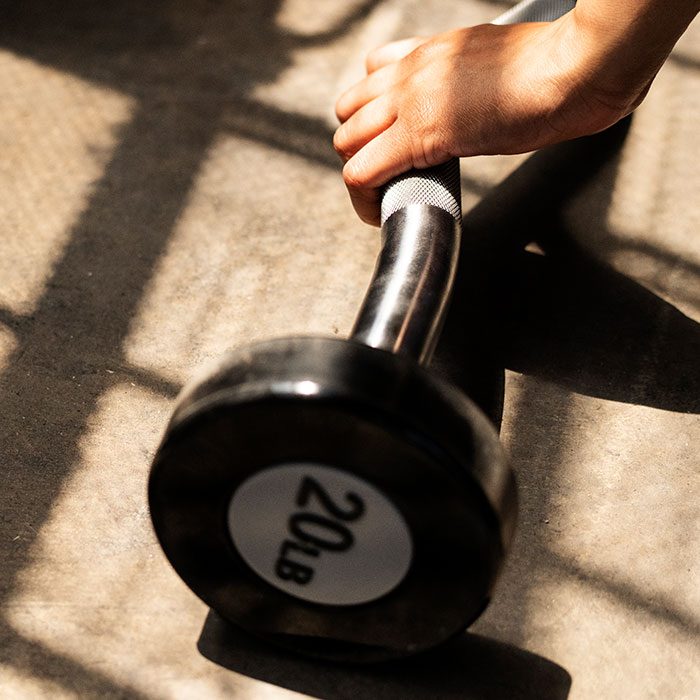Creatine Supplements Explained: Your Complete User’s Manual
If you’re delving into the world of fitness and muscle-building, you’ve probably heard about creatine supplements. Creatine is one of the most extensively studied and effective supplements when it comes to enhancing athletic performance, muscle growth, and strength gains.
However, there’s often confusion about when and how to start using creatine. Here we’re going to shed light on this topic and provide you with a clear understanding of when and how to incorporate creatine into your fitness journey.
When to Start Using Creatine Supplements

Before we start exploring the specifics of creatine supplementation, let’s address the critical question of when you should start using creatine supplements.
Understanding Creatine Supplements
First and foremost, it’s essential to comprehend what creatine is and how it works. Creatine is a naturally occurring compound found in small quantities in certain foods and synthesized by the body.
It plays a crucial role in energy metabolism, particularly during short bursts of high-intensity activity, such as weight lifting and sprinting.
Assess Your Fitness Goals

When considering the use of creatine, it’s crucial to evaluate your fitness goals. Creatine is particularly beneficial for individuals aiming to:
- Increase muscle mass
- Improve athletic performance
- Enhance strength and power
- Support high-intensity workouts
Hence, if your fitness objectives align with any of the above, creatine might be a valuable addition to your regimen.
Training Experience
Your training experience also plays a role in determining the best time to start taking creatine. It can be advantageous for both beginners and experienced athletes, but the timing may differ. Here’s how:
- Beginners: Newcomers can begin using creatine early in their fitness journey, as it can accelerate their progress and help them adapt to intense workouts.
- Experienced Athletes: Seasoned athletes who have plateaued in their training might introduce creatine to break through barriers and reach new levels of performance.
Age Matters
Age can also influence the right time to get started with creatine. While creatine is generally safe for most age groups, it’s more common among adults and older teenagers. Younger individuals who are still growing should consult with a healthcare professional before considering creatine supplementation.
What is the Right Age to Start Using Creatine Supplements?
When it comes to the world of fitness and sports, teenagers often find themselves at a unique crossroads. The desire to excel, build muscle, or overcome body image issues can lead them to consider supplements like creatine. But the question lingers: What is the right age for teens to start using creatine?
Amid the myriad of reasons adolescents turn to creatine, the American Academy of Pediatrics is vocal about the importance of educating young minds on the potential risks associated with performance-enhancing substances. The pressures to perform better in sports or to achieve a certain body image can be daunting during these formative years.
The reality is, many teens hope creatine will give them a competitive edge in their athletic pursuits or help them gain muscle mass. However, it’s vital to understand that for most teenage athletes, creatine and similar supplements won’t magically transform their performance. Genuine progress still hinges on proper training and a well-balanced diet.
But what about the concerns surrounding growth and height? It’s important to note that studies do not support the idea that creatine stunts growth or aids in becoming taller. Yet, the truth is, there’s still much that remains unknown about its effects on growing bodies.
So, what’s the expert consensus? Most doctors and medical societies recommend that creatine use be reserved for athletes who are 18 years and older. This age recommendation isn’t just a mere guideline; it’s a cautious approach that prioritizes the health and well-being of teenagers.
Creatine Supplements to Unleash the Beast Within

Now that you understand when to start incorporating creatine in your diet, let’s delve into the world of creatine supplements.
Creatine Monohydrate
When it comes to creatine supplements, the undisputed heavyweight champion is creatine monohydrate. This form of creatine is exhaustively demanded, and it consistently proves its worth. But what makes it so remarkable? Let’s find out!
- Effectiveness: Creatine monohydrate powder is highly effective in increasing muscle mass and enhancing exercise completion.
- Safety: It has a well-established safety profile.
- Affordability: Creatine monohydrate is cost-effective, making it a practical choice for most individuals.
Micronized Creatine Supplements
Micronized creatine monohydrate is the cool kid on the block. It takes the pure form of creatine monohydrate and grinds it down into smaller particles for enhanced absorption. This results in faster and more efficient delivery of creatine to your muscles.
Fast Absorption: Micronized creatine monohydrate is like an express train, delivering the goods to your muscles in record time. It’s perfect for those who want results ASAP.
Less Bloat: If you’ve heard tales of creatine supplements causing water retention and bloat, this creatine supplement can mitigate these effects.
Top 3 Creatine Supplement Brands

Optimum Nutrition Micronized Creatine
Optimum Nutrition Micronized Creatine is one of the best creatine supplements, encompassing the qualities of purity, potency, and reputation. Here’s why it shines like a beacon among fitness enthusiasts:
- Purity and Micronized Form: ON Micronized Creatine is revered for its remarkable purity. This product comprises pure creatine monohydrate powder without any impurities or fillers, adhering to the highest standards of quality.Moreover, its micronized form ensures that the particles are finely ground, facilitating their dissolution in various liquids for convenient consumption.
- Brand Reputation: As a brand of great repute, Optimum Nutrition embodies trustworthiness. Their longstanding commitment to producing high-quality products instills confidence in consumers.The brand’s credibility is further emphasized if its NSF certified for sport, assuring athletes of a supplement that’s devoid of banned substances and contaminants.
- Serving Size: If you’re wondering how much creatine you should take in a day, then a serving size of approximately 5 grams per day is ideal. Moreover, ON Micronized Creatine aligns with the standard dosage, catering to most fitness enthusiasts.
- Versatility and Affordability: Its versatility allows for seamless integration into your daily routine, whether mixed with a protein shake, pre-workout concoction, or simple water.What’s more, this high-quality supplement doesn’t strain your wallet, making it an accessible choice for those seeking an effective and budget-friendly creatine product.
Creatine HCL

Creatine Hydrochloride (HCL) emerges as an alternative worth considering, particularly for individuals seeking solubility and gentleness on the stomach. Let’s delve deeper into its unique qualities:
- Outstanding Solubility: Creatine HCL is highly soluble in water, ensuring a smooth blending process. The enhanced solubility minimizes the likelihood of clumping or settling at the bottom of your shaker, providing a seamless experience.
- Gentler on the Stomach: Some users find that Creatine HCL is more stomach-friendly compared to other creatine forms, making it an attractive option for those who have experienced digestive discomfort with alternative forms.
- Lower Dosage Requirement: With Creatine HCL, smaller serving sizes are typically sufficient when compared to creatine monohydrate powder, making it the best creatine supplements for those who prefer lower doses.
- Potency: Its superior solubility contributes to higher potency, as the body can absorb and utilize it more efficiently. This attribute may lead to quicker results for some individuals.
- Reputation Matters: To ensure the product’s quality and purity, it is advisable to opt for Creatine HCL from reputable and established brands.
Creapure Creatine Monohydrate
The mention of “Creapure” in Creapure Creatine Monohydrate signifies a premium-grade product that represents the gold standard within the creatine supplement realm. Here’s why it stands as a beacon of quality:
- Unrivaled Purity: Creapure Creatine Monohydrate is celebrated for its unparalleled purity and quality. Undergoing rigorous testing, it is free from impurities, contaminants, and harmful substances, guaranteeing its safety for athletes and fitness enthusiasts alike.
- Manufactured in Germany: Produced in Germany under rigorous quality control standards, Creapure embodies excellence. The manufacturing process is closely monitored to ensure a product of the highest caliber.
- Proven Effectiveness: Renowned for its ability to enhance exercise performance, increase lean muscle mass, and support strength gains, Creapure Creatine Monohydrate enjoys a stellar reputation within the fitness community.
- Additive-Free: It’s worth noting that Creapure is pure creatine monohydrate without any superfluous additives, artificial flavors, or colors. This ensures you receive the essential product without any unnecessary fillers.
- Serving Size: A typical serving size for Creapure Creatine Monohydrate ranges from 3-5 grams per day, making it simple to incorporate into your daily supplement regimen.
Weight Gain: A Side Effect of Creatine Supplements?

As you navigate creatine supplementation, you might encounter changes in your body weight. It’s not uncommon to observe an increase in weight due to water retention in muscles.
This effect is generally temporary, and it’s important to remember that the primary goal of creatine is to help with retaining muscle mass and improve your sports nutrition position stand.
Pre-Workout Potential of Creatine Supplements

Incorporating creatine into your pre-workout routine can be strategic. Creatine’s ability to enhance your muscles’ energy reserves makes it the best creatine supplements as part of a pre-workout regimen.
By taking creatine before your workout, you’re ensuring that your muscles are well-prepared to tackle the challenges of high-intensity training.
Factors to Consider When Choosing Your Creatine Supplements
Choosing the right creatine monohydrate supplement can significantly impact your performance and results. It’s not just about grabbing the first product you see on the shelf. In this comprehensive guide, we’ll walk through the key factors to consider when selecting a creatine supplement that suits your fitness goals.
So let’s get started!
Purity of Creatine Supplements
Look for products that boast purity. A high quality creatine supplement will showcase keywords like “only pure creatine” and “pure creatine monohydrate” are your indicators of high-quality offerings.
This ensures that you’re getting the real deal, without any unnecessary additives or fillers.
Certifications

When choosing a creatine monohydrate supplement, opt for products that are National Sanitation Foundation – NSF certified for sport.
Taking creatine with this seal of approval guarantees that the supplement is free from banned substances and contaminants, making it safe, reliable, and one of the best creatine supplements for athletes. It’s a surefire way to boost performance without worrying about unintended consequences.
Particle Size Matters
These are not just small particles; they can be your secret weapon. Micronized creatine monohydrate particles are finer and more easily absorbed by your body.
This translates to enhanced performance and quicker results, making it the preferred choice for many looking to increasing athletic performance, enhance performance, and build muscle mass.
Flavor and Form
Creatine comes in various forms to suit your preferences. You can choose between creatine powders and creatine capsules, depending on what fits seamlessly into your routine. And for those who aren’t fans of the natural flavor of unflavored creatine, flavored creatine supplements are also available.
Some manufacturers offer flavored creatine supplement options that can make your experience more enjoyable. Whether you prefer fruit punch or a more exotic flavor, there’s an extensive variety to choose from.
Post Workout Potential
If you’re wondering when is the best time to take your creatine monohydrate supplement, consider incorporating it into your post-workout routine. After a strenuous workout, your muscles are like sponges, ready to soak up nutrients, and creatine can play a crucial role in muscle recovery and growth.
The Impact of Creatine Supplemets on Muscle Growth

As a fitness enthusiast, you’re likely no stranger to the buzz surrounding creatine and its remarkable impact on muscle growth. But how does this popular dietary supplement truly work its magic to help you achieve that coveted lean, muscular physique?
Let’s unravel the science behind creatine’s role in fostering muscle growth.
Increasing Lean Muscle Mass
- Water Content within Muscles: Creatine plays a pivotal role in increasing the water content within your muscle cells. You might wonder why this is a good thing.Well, this enhanced water retention creates a favorable environment for muscle growth. The extra fluid effectively volumizes your muscles, giving them a fuller and more robust appearance.
- Skeletal Muscles: Primarily, creatine targets your skeletal muscles—the voluntary muscles responsible for your body’s movements.By enhancing water retention within these muscles, creatine monohydrate powder indirectly contributes to the development of lean muscle mass. These skeletal muscles are your partners in high-intensity exercise, and creatine equips them for peak performance.
Empowering Muscle Cells
- Direct Effect on Muscles: Creatine has a direct impact on muscle energy, wherein, it helps you to improve exercise performance. It acts like a turbocharger for these cells, enhancing their ability to generate energy during high-intensity workouts. This boost in energy production is a game-changer, allowing you to push your limits and train harder.
- High-Intensity Exercise: When you engage in high-intensity exercise, your muscles demand a rapid supply of energy to fuel your performance.Creatine monohydrate steps in as your ally, facilitating the swift production of energy. This translates into more powerful lifts, explosive sprints, and extended endurance during your workouts.
Beyond the Gym
- Amino Acids and Brain Function: While creatine primarily targets muscles, it has broader implications for your overall health and wellness.The amino acid involved in these sports supplements also plays a role in brain function. This connection between muscle and brain underscores the multifaceted nature of creatine’s benefits.
- High-Intensity Exercise and the Brain: Engaging in high-intensity exercise triggers various physiological responses in your body, including the release of neurotransmitters that impact your mood and cognitive function.By enabling better performance during high-intensity workouts, creatine monohydrate indirectly contributes to these brain-boosting effects.
Safety Considerations
1. Kidney Health
First off, let’s start with your kidneys. There’s a myth floating around that the creatine molecule is harsh on your kidneys, but scientific studies show that’s not the case for most folks.
If your kidneys are healthy, creatine typically doesn’t pose a problem. However, if you have a kidney disease, it’s wise to check with your doctor before adding a creatine supplement to your routine. They can give you personalized advice based on your health.
2. Stay Hydrated

Hydration is key. Sometimes, creatine monohydrate can make your muscles hold onto more water, which might lead to temporary weight gain. But remember, it’s not fat gain; it’s just extra water in your muscles.
On the other hand, to avoid any potential dehydration, drink plenty of water throughout the day. The general recommendation is 8-10 glasses of water daily, which is a good habit, especially if you’re into fitness.
3. Gastrointestinal Sensitivity
For some individuals, creatine can cause stomach troubles. This usually happens if you take large doses without eating. If you’re experiencing digestive discomfort, try taking your creatine with a meal or split the dose throughout the day. It might help ease any stomach issues.
4. Weight Gain
A creatine supplement can make your scale go up temporarily, thanks to the water your muscles hold onto. Don’t stress about it; it’s a good sign that your creatine is helping your muscles recover and grow. Remember, it’s not extra fat.
5. Pre-existing Conditions
If you’ve got specific health conditions like diabetes, high blood pressure, or a history of liver problems, it’s a good idea to chat with your doctor before diving into creatine. While it’s usually safe, it’s better to be cautious when you have pre-existing health concerns.
6. Allergic Reactions
Although it’s rare, some people might have an allergic reaction to the creatine supplement. If you notice itching, swelling, hives, or trouble breathing after taking it, stop immediately and seek medical help. Hence, it’s ideal to start with small doses to be safe.
7. Medication Interaction
If you’re on any medications, have a chat with your healthcare provider before adding creatine. Some medications might not play nice with creatine, which could affect their effectiveness. Keeping your doc in the loop is a smart move.
Health Benefits of Taking Creatine Supplements

1. Enhanced Exercise Performance
Let’s begin with one of the standout advantages – improved exercise performance. A creatine supplement acts like a dependable ally for your muscles.
It boosts your body’s production of ATP, the primary fuel your muscles rely on during high-intensity activities. More ATP means you can push through demanding workouts, helping you train harder and longer. Ultimately, this results in better fitness gains.
2. Increased Muscle Mass and Strength
When it comes to building lean muscle and strength, creatine is your trusty companion. It assists your muscles in retaining more water, giving them a fuller, more pumped appearance.
Over time, creatine contributes to muscle growth, leading to increased strength. Whether you’re aiming to bulk up or maintain your muscle mass, creatine is a valuable asset.
3. Speedier Recovery and Reduced Muscle Soreness
Post-workout soreness is something most of us would rather avoid. Creatine plays a role in reducing muscle cell damage and inflammation, leading to quicker recovery. This means you can return to your workouts sooner and experience less post-exercise soreness.
4. Cognitive Benefits
Here’s an intriguing twist – a creatine supplement isn’t limited to muscle benefits; it can also boost cognitive function. Some studies suggest that creatine may enhance memory and mental performance. While further research is necessary in this area, it’s an exciting aspect of a creatine’s potential.
5. Management of Specific Health Conditions
Creatine isn’t exclusive to athletes; it holds promise for specific health conditions. Some individuals with neurological conditions such as Parkinson’s disease or depression have shown improvement with creatine supplementation. It’s important to note that creatine isn’t a cure-all, but it may play a role in managing these conditions.
Practical Tips

1. Stay Hydrated
One of the first things to remember before you dive into supplementing creatine is to keep yourself well-hydrated. Why, you ask? Well, creatine has a nifty way of increasing water retention in your muscles.
This is excellent for muscle growth, but it could potentially lead to dehydration if you’re not careful. So, ensure you’re sipping on enough H2O throughout the day. The general guideline is around 8-10 glasses of water daily, which is not only good for your creatine regimen but also for overall health.
2. Quality Matters: Seek Third-Party Testing
When you’re shopping for creatine powder, it’s wise to choose products that have undergone third-party testing. What’s the deal with that? Well, third-party testing ensures that the supplement you’re getting is of high quality and purity.
You want to be confident that what’s on the label is what you’re putting into your body. Look for certifications or seals that indicate the product has been tested – it’s a sign that you’re investing in a reliable product, making your creatine supplementation safe.
3. Balance is Key
Here’s the important thing to remember: creatine isn’t a magic pill that will instantly transform your physique. It’s a valuable tool to support your fitness goals, but it works best when it’s part of a balanced approach.
You can do this by combining creatine powder with a balanced diet and a consistent workout routine. It’s this combination that will help you maximize the benefits of creatine. It enhances your performance, but it won’t replace the hard work you put in at the gym or your healthy eating choices.
Conclusion
In conclusion, the decision of starting creatine depends on your fitness goals, experience level, and age. Creatine supplements, particularly creatine monohydrate, can be a valuable addition to your fitness regimen when used correctly.
Always prioritize safety, choose high-quality products, and consult with a healthcare professional if you have any concerns. With the right approach, creatine powder can be a powerful tool to help you achieve your fitness aspirations and reach new heights in your sports nutrition.









